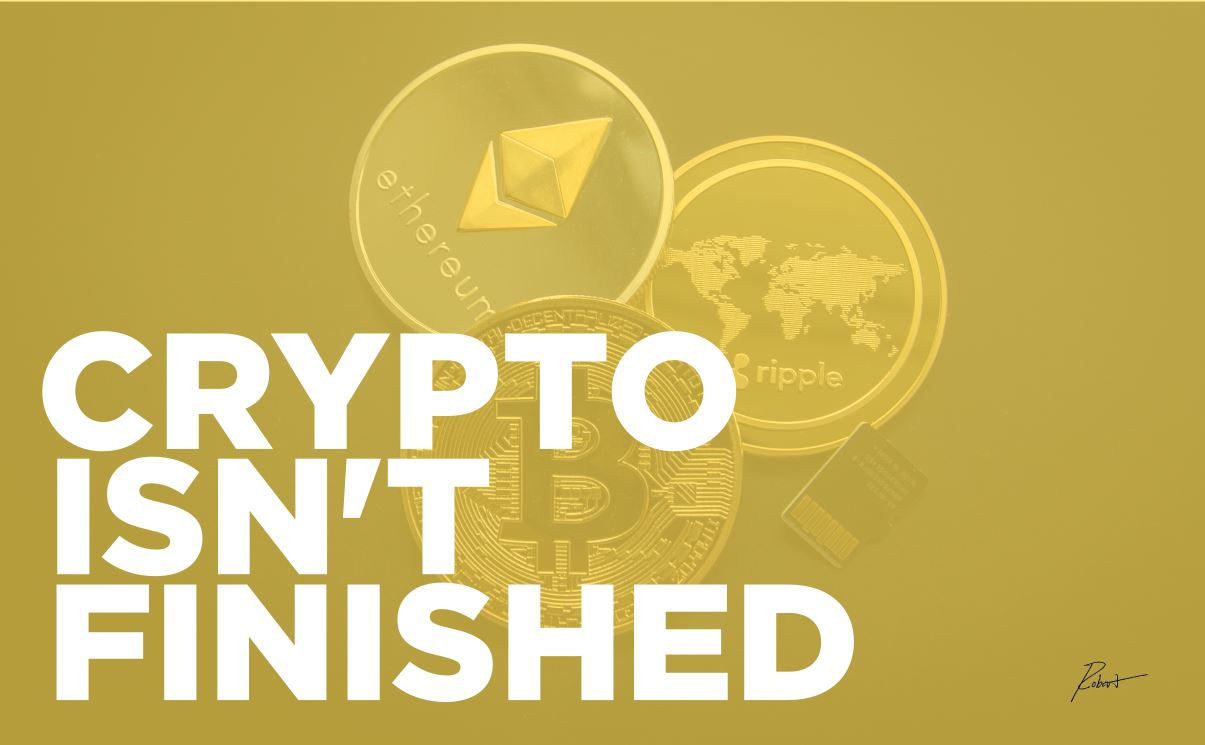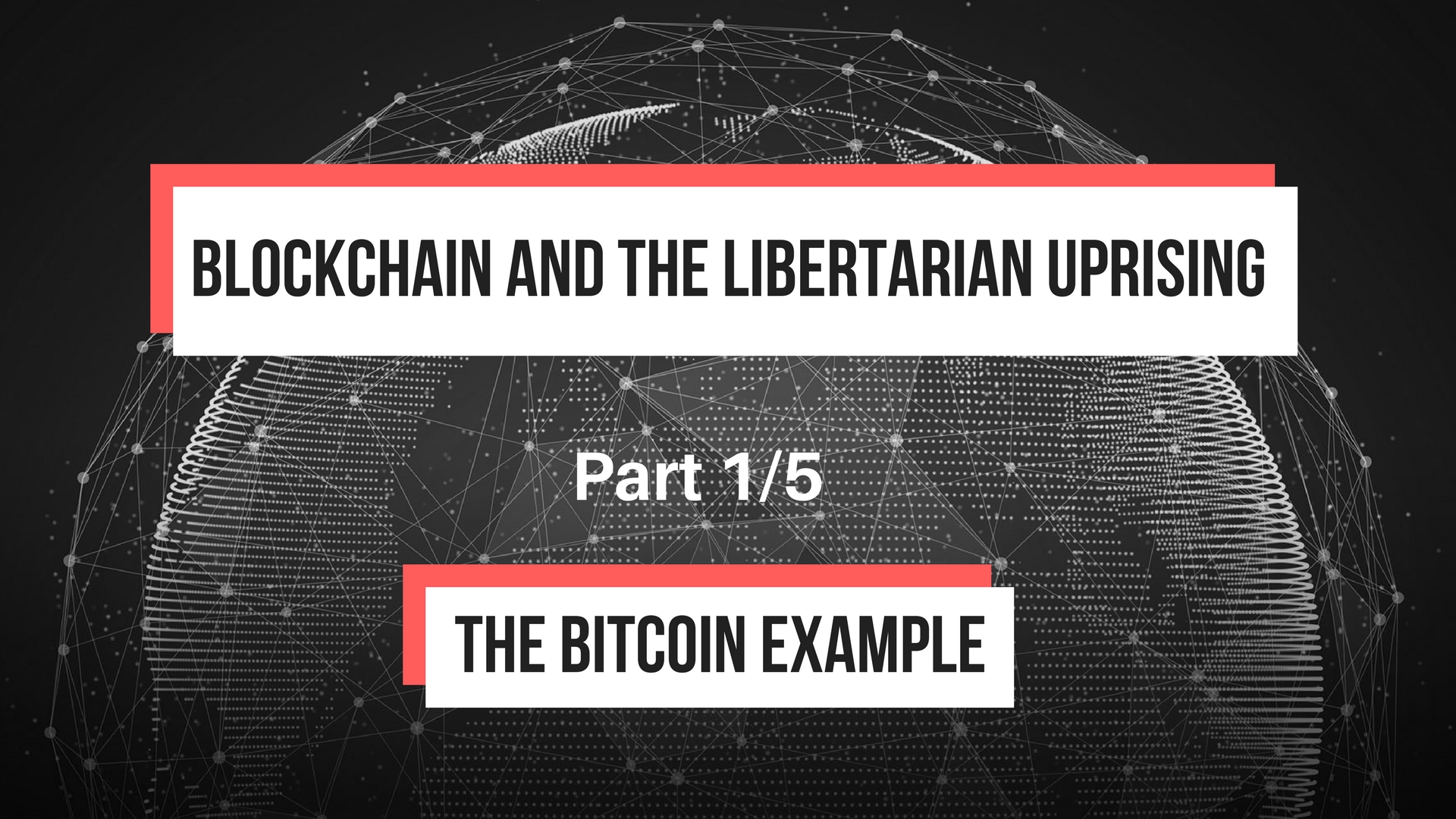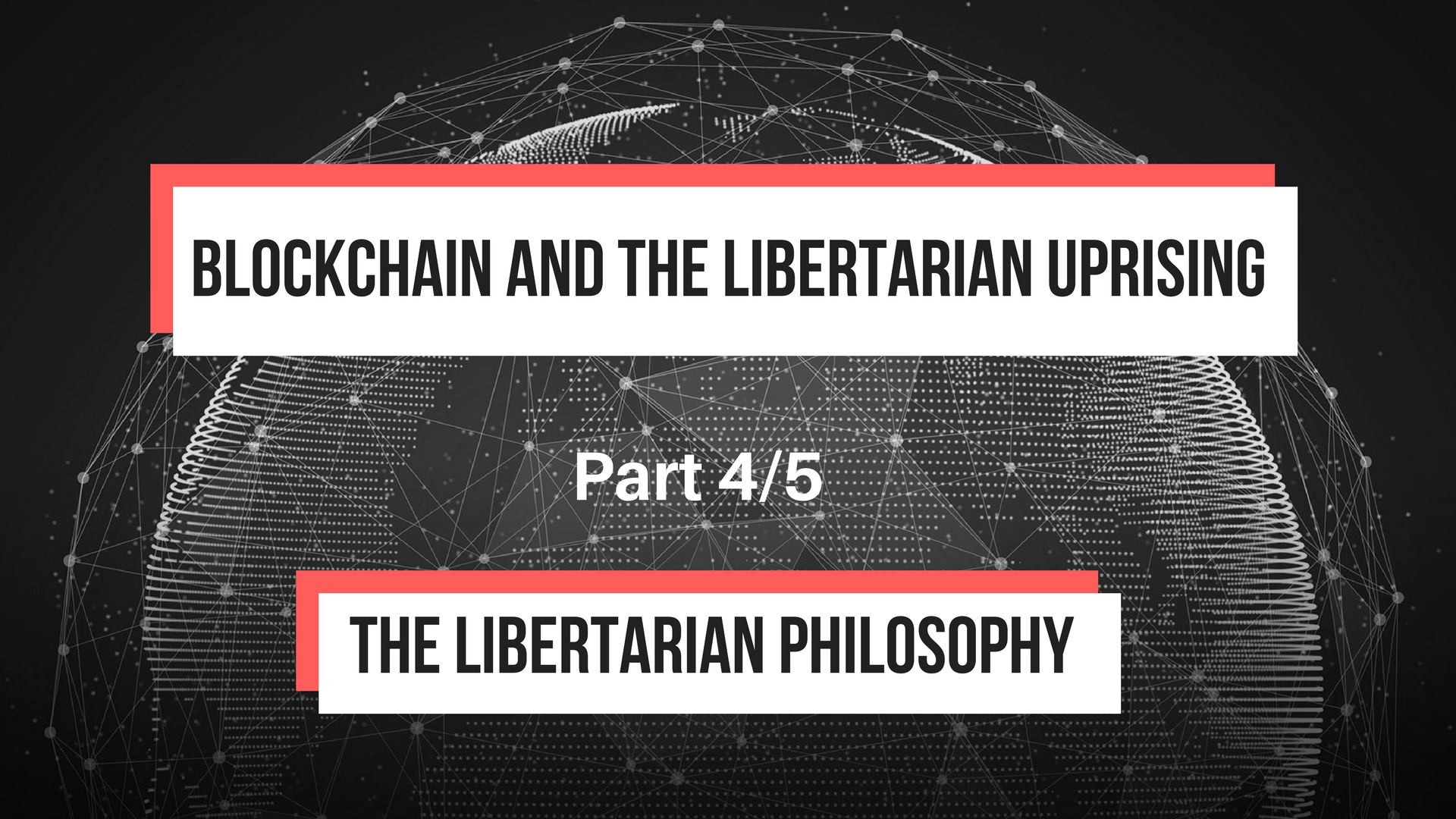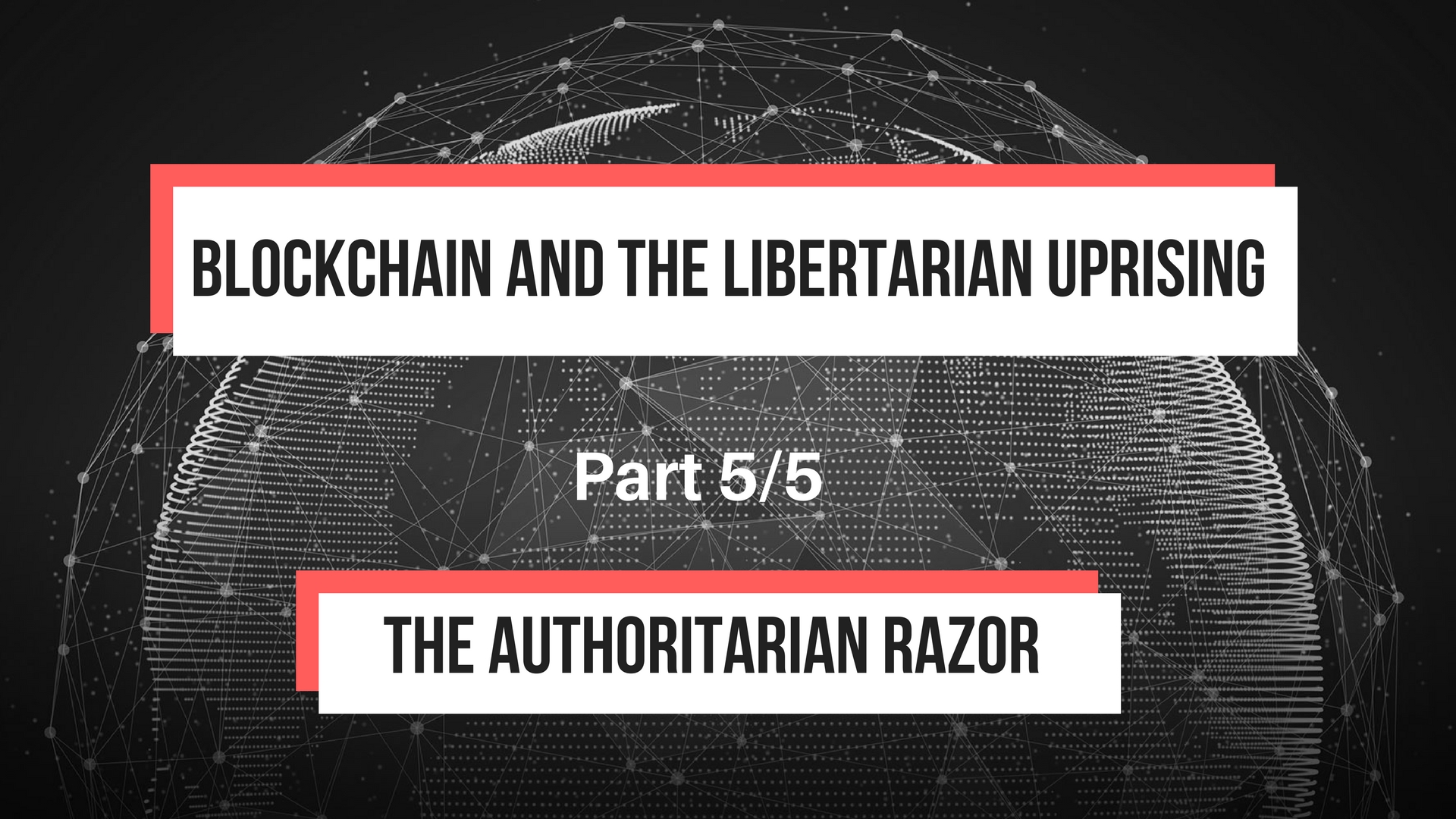Tag: blockchain
-

What I Tell Crypto Non-Believers
We’ve seen this before When a revolutionary technology comes around, it’s easy to get caught up in the hype without really understanding what the fundamental disruption really is. I saw this happen in the dotcom boom when anyone with a website claiming to be a company got showered with money from investors. The investors and…
-

Blockchain and the Libertarian Uprising: The Bitcoin Example
This is part 1 of a 5 part series adapted in blog format from my senior research paper titled “Blockchain and the Libertarian Uprising“. Why do we trust a currency backed by a government that is fourteen trillion dollars in debt? Ever since 1971, when Nixon announced that US dollars could no longer be redeemed…
-

Blockchain and the Libertarian Uprising: The Libertarian Protocol
This is part 4 of a 5 part series adapted in blog format from my senior research paper titled “Blockchain and the Libertarian Uprising“. THE LIBERTARIAN PROTOCOL One of the first promising non-cryptocurrency applications of blockchain is the smart contract. A contract is generally a written agreement between two parties (e.x. A tenant agrees to…
